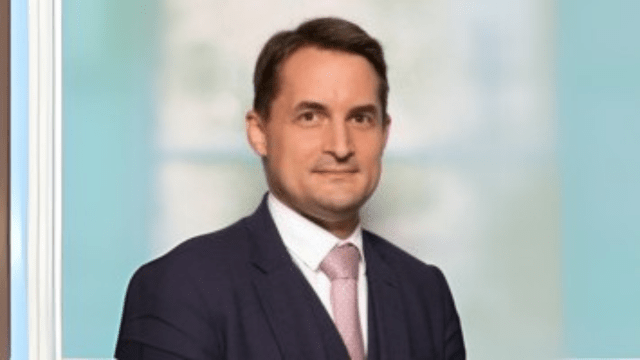Florian Richard-Dap (Éco-gestion, 2001): adding value to public action
After completing his preparatory classes, Florian Richard-Dap looked to combine his strong scientific background with his interest in the social sciences. The economics and management program at ENS Paris-Saclay seemed to meet this expectation, and he began his studies there on a certain September 11, 2001. Fascinated by Bertrand Munier’s courses in decision and game theory, Florian continued with a research master’s (Master 2) in “Decision Sciences and Risk Modelling,” which the professor had just created. “It included both economics courses, but also sociological, psychological, and quite advanced statistical modelling,” he recalls. Alongside his first professional experiences, he decided to pursue a PhD on the same topic, “to properly complete my academic journey.” While teaching didn’t particularly appeal to him—“I couldn’t see myself teaching full-time,” he says—research sparked a certain interest in the normalien student.
When the good student becomes a manager
Florian completed an internship in the risk department at Natixis. “Banks were undertaking many initiatives around risk management at the time.” He then learned the consulting profession under Stéphane Bouvet, “a prominent figure in consulting.” His career unfolded across various consulting firms, with assignments in diverse sectors such as industry and energy. “When you’re questioning your career path, consulting lets you test different sectors and find the one where you’ll be the most useful.”
In 2011, Florian Richard-Dap was appointed “Consulting Manager” at CGI[1], a decisive milestone in any consultant’s career, as it involves taking responsibility for generating revenue. “After five to six years of experience, the good student becomes an entrepreneur. From that turning point on, every step in my career has been marked by this entrepreneurial dimension: developing a team, a business offer, a client base, a new approach or method…”
Public service, a revealed calling
Two years into his career, Florian Richard-Dap carried out his first assignment for the public sector. “In fact, the public service was already somewhat present in the background of my earlier projects,” he notes. “But the world of public administration was completely unknown to me. I had never been exposed to it—neither through my family nor at ENS Paris-Saclay, whose economics curriculum was more oriented toward private-sector economic issues.” The consultant thus collaborated with the European Commission alongside the French government to design the state's decarbonization strategy, assisted the Ministry of the Economy in turning around several major companies in difficulty, and supported the general management of numerous cultural institutions (operas, museums, art centers…) in strengthening their economic and strategic models. The normalien also worked on employment issues with various French regions, reflecting on ways to promote local employment, economic development, and skills enhancement. For Agefiph, he helped shape its strategic plan. “All these topics deeply interested me and were especially enriching missions,” he affirms.
Valuing public administration
“I work in a private organization, but I’m very attached to the public good,” says Florian. Recently recruited by Ipsos, he has joined the team of Brice Teinturier, a well-known media figure and “a decisive factor” in his decision to join the firm. “Ipsos is creating a unit dedicated to the evaluation of public policies, complementing its traditional work in public opinion research and analysis. While this activity already existed in a less structured way, the new entity immediately resonated with me. I believe I can bring a different and complementary perspective, especially by leveraging an understanding of opinion dynamics—a dimension less present in traditional consulting firms.”
For Florian, public policy evaluation today addresses a dual requirement: rigorous management of public funds—crucial in a context of budgetary constraints—and a legitimate civic demand that public money be used effectively, that is, delivering tangible results. “Public policy evaluation helps to restore meaning to public action and provides concrete proof of the impact of policies on citizens’ daily lives. Today, that’s what motivates me every morning,” he confides.
Real life
Although normaliens are sometimes seen as too “theoretical” for the business world, Florian Richard-Dap defends instead the School’s unique ability to link theoretical foundations with the operational challenges of institutions. “Today, it’s probably my courses in economics, risk management, and statistical modelling tools that are most useful to me.” Beyond theoretical knowledge, the normalien experience fostered the ability to study very diverse topics simultaneously—and to find them interesting. “No two assignments are the same, and each time, you have to adapt to a new environment, with its own issues, constraints, and stakeholders.” To this end, Florian Richard-Dap advises future graduates to “face the reality on the ground and step outside their comfort zone.” “Cultivate your curiosity—it’s your greatest asset!” he concludes.
[1] Founded in the 1970s, CGI (Conseillers en gestion et informatique) is a major Canadian company providing consulting services in IT, systems integration, outsourcing, and solutions.

Comments0
Please log in to see or add a comment
Suggested Articles


